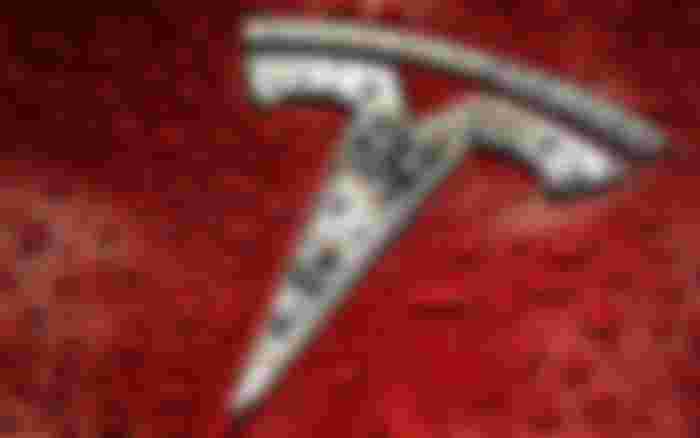
Tesla is up 27% this year, beating the average increase of 14% for the top ten automakers.
On August 7, 2018, Musk tweeted: "We are considering privatizing Tesla at a repurchase price of $ 420 per share, and funds are in place." The "privatization" incident caused a stir and also took away Chairman of Musk. Today, Tesla has not been privatized, but its stock price has quietly surpassed the $ 420 per share he raised.
At 12:10 pm EST on December 23, 2019, Tesla's share price climbed to $ 421.95, even exceeding the privatization price proposed that year. This is an all-time high for the stock price since the company was founded, and an extraordinary performance after a year of turmoil.
The company, founded more than a decade ago in Palo Alto, Silicon Valley, California, has outperformed all automakers from Detroit to Toyota City to Wolfsburg. In terms of sales volume growth and long-term shareholder value, it is the undisputed king.
Tesla currently has a market value of US $ 76.6 billion, second only to Toyota (US $ 230 billion) and Volkswagen (US $ 98 billion) among the 38 large multinational automakers worldwide. It easily crushes Detroit's established auto companies, GM and Ford.
So, why has Tesla, which has been fading, recently surged in stock prices recently?
Shanghai : Super Factory secured funding
According to Reuters reports on December 23, Tesla has reached a loan agreement with a number of domestic banks and obtained a total of five billion yuan in loans for a period of five years, some of which will be used to repay existing loans.
The interest rate of the loan is 90% of the benchmark annual interest rate, which is the same as the one-year loan interest rate of 3.5 billion yuan in March 2019, which is already the level of interest rates that the bank's best customers can get.
The banks providing loans this time include China Construction Bank, Agricultural Bank of China, Industrial and Commercial Bank of China, and Shanghai Pudong Development Bank.
This new funding has guaranteed Tesla's vehicle production and business layout in China, the largest automotive market, and is expected to significantly increase Model 3 sales expectations.
Berlin's : Super Factory Layouts European Market
In the global automotive electric vehicle market, European electric vehicle sales share is growing rapidly. According to Bloomberg NEF, sales of pure electric and plug-in hybrid passenger cars in Europe are expected to increase by 35% in the first nine months of 2020, a growth rate much higher than that of the Chinese and North American markets.
In November this year, Musk announced at the Golden Steering Wheel awards ceremony that Tesla's No. 4 super factory will be built in Berlin, Germany to further expand its global manufacturing network; the company will also be at the city's airport An engineering design center was established nearby.
He said that the German plant will produce batteries, powertrains and cars. The production of cars will start from Model Y. The new plant is expected to employ 10,000 employees and the annual production capacity is expected to reach 500,000.
Tesla's plant here can use Germany's top manufacturing skills, positive supply chain dynamics, and policy subsidies, while at the same time being able to issue positive challenges with established German automakers.
In order to accelerate the development of the European electric vehicle industry, the European Commission announced on December 9 that it has approved and approved nearly 3.2 billion euros of state aid projects in support of the "European Common Interest Project" (IPCEI) rules. R & D and innovation of battery technology. The project has seven member states: Germany, France, Italy, Belgium, Finland, Poland, and Sweden.
As Europe's largest car market, the government led by German Chancellor Angela Merkel and domestic carmakers have agreed to increase incentives for electric vehicles and encourage their development. The German government announced that the subsidy for each electric vehicle will increase to 6,000 euros, half of which will be borne by the automotive industry. These changes took effect in November and will last until 2025.
New product release
In 2019, the company introduced a number of new models, including the controversial Cyberpuck truck Cyberbert.
This bullet-proof version of the electric pickup comes in three versions: single-motor rear-drive, dual-motor full-drive and three-motor full-drive. The prices are $ 39,900, $ 49,900, and $ 69,900 respectively. Kilometers), 300 miles (482 kilometers) and 500 miles (804 kilometers). The fastest acceleration of 100 kilometers is 2.9 seconds, and production is expected to begin in 2021.

Consumers can now book Cybertruck online for a $ 100 deposit. Musk said in November that just three days after Cyberbert's launch, the company had received more than 200,000 orders.
In addition, the company's compact SUV Model Y released in March this year is likely to be its most important model. After all, the SUV is closer to market demand. This car will also begin production in 2020.
Model 3 sales in the U.S. entry-level luxury car market now exceed German and Japanese competitors. Since the release of the first Model S in 2012, Tesla's sales have increased 52 times, while the average growth of the automotive industry is 46%.
Stricter emissions regulations
Globally, countries are gradually banning heavily polluting fuel vehicles, and automobile exhaust emission standards are becoming stricter. In terms of green energy and clean technology, Tesla has an absolute advantage.
EU's new emission regulations will take effect in early 2020, requiring automakers to reduce the average car carbon dioxide emissions to 95 grams per kilometer, which will have a huge impact on the European auto industry and will be fined for every gram that exceeds the target Over $ 100.
Bernstein automotive analyst Max Warburton said that “in the next 18 to 24 months, the goal of the automotive industry is stunning.” He estimates that if the automotive industry sells in 2021 'S product portfolio is exactly the same as last year, and automakers could face fines of 25 billion euros.
What do Wall Street investors think?
On Wall Street, most analysts are unmoved.
Jim Chanos said in November that Tesla was "one of our biggest and best short positions." Greenlight Capital, a hedge fund led by well-known investor David Einhorn, said Tesla "is about to lose its wheels." Einhorn said in a Bloomberg interview in May that he would continue to be short because the electric car company still faces a "serious endless loss."
Tesla's financial performance has turned from a loss of more than $ 700 million at the beginning of the year to a profit in the third quarter. The company's third-quarter earnings of $ 1.86 per share exceeded the widely predicted loss of 24 cents and exceeded the most optimistic forecast in the market. However, analysts expect Tesla's overall performance in 2019 to still suffer losses.
Although the most noticeable media report is the bearish Tesla report, data compiled by Bloomberg shows that the stock market's share of the Tesla has fallen to its lowest level since the company's 2010 IPO. The proportion of short sales in Tesla stock trading has fallen to 9.2%, and by June it was close to 30%, higher than the ratio of all companies in the S & P 500 a year ago.
It is widely believed that Tesla is the most volatile car stock, but the data is just the opposite. Tesla is up 27% this year, beating the average increase of 14% for the top ten automakers. In 2018, Tesla ranked first with a total return of 7% (revenue plus value added), while its competitors lost 16%. In the past two years, Tesla has also ranked first with a return of 31%, while its peers have lost 4%.
No automaker has been able to keep up with Tesla's growth rate. Tesla's revenue has increased tenfold since 2014. According to Bloomberg's predictions from 27 analysts, Tesla's revenue will increase by 14% in 2019, 21% in 2020, and 18% in 2021. The average growth rates of the top 10 global automakers over the same period will be 1%, 4%, and 3%, respectively.

